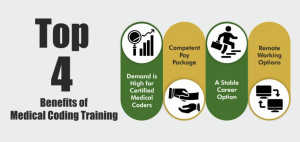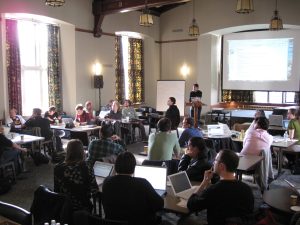Learning medical billing can be a challenging endeavor, requiring dedication, attention to detail, and a thorough understanding of healthcare processes. The complexities of coding, insurance claims, and procedural documentation can make the task seem daunting. However, with the right resources and a commitment to continuous learning, mastering medical billing is certainly achievable. In this article, we will explore the intricacies of learning medical billing and provide valuable insights into the skills and knowledge required to succeed in this field.
What is Medical Billing?

Definition of Medical Billing
Medical billing refers to the process of submitting and following up on claims with health insurance companies in order to receive payment for services provided by healthcare providers. It involves translating medical procedures, diagnoses, and treatments into standardized codes, submitting claims and invoices, and ensuring accurate and timely reimbursement.
Role of Medical Billers
Medical billers play a crucial role in the healthcare system by ensuring that healthcare providers receive appropriate compensation for their services. They are responsible for translating medical records and documentation into standardized codes, preparing and submitting claims to insurance companies, and managing the entire billing process. In addition to handling claims, medical billers also handle patient billing inquiries, resolve billing issues, and coordinate with insurance companies to ensure accurate and timely reimbursement.
Importance of Accurate Medical Billing
Accurate medical billing is of utmost importance for several reasons. Firstly, it ensures that healthcare providers receive timely payment for their services, allowing them to continue providing quality care. Secondly, accurate billing helps prevent fraud and abuse within the healthcare system by ensuring that only legitimate services are being reimbursed. Finally, accurate medical billing is essential for maintaining patient satisfaction and trust, as billing errors can lead to confusion, disputes, and financial difficulties for patients.
Skills Required for Medical Billing

Basic Computer Skills
Proficiency in basic computer skills is essential for medical billers, as they need to use billing software, databases, and electronic health records (EHR) systems to manage and submit claims. They should also be familiar with spreadsheet software, word processing software, and email communication.
Organizational Skills
Medical billers need to have strong organizational skills to effectively manage and keep track of multiple claims, patient records, and billing documents. They should be able to prioritize tasks, meet deadlines, and maintain accurate and well-organized records.
Attention to Detail
Attention to detail is crucial in medical billing, as even a small error or omission in codes or patient information can lead to claim denials or delays in reimbursement. Medical billers need to carefully review and verify all information to ensure accuracy and compliance with coding and billing guidelines.
Analytical Skills
Medical billers often need to analyze complex medical records, coding guidelines, and insurance policies to determine the appropriate codes and billing procedures. They should have strong analytical skills to understand and interpret medical information and apply coding guidelines accurately.
Knowledge of Medical Terminology
A solid understanding of medical terminology is essential for medical billers to effectively translate diagnoses, procedures, and treatments into accurate codes. They should be familiar with common medical terms and their corresponding codes to ensure accurate and appropriate billing.
Understanding of Coding Systems
Medical billers need to be familiar with coding systems such as the International Classification of Diseases (ICD) and Current Procedural Terminology (CPT). These coding systems are used to categorize medical diagnoses and procedures and are crucial for accurate medical billing and reimbursement.
Education and Training

High School Diploma or Equivalent
While a high school diploma or equivalent is the minimum educational requirement for a career in medical billing, a higher level of education can provide more comprehensive training and improve job prospects.
Post-Secondary Education in Medical Billing and Coding
Many vocational schools, community colleges, and online institutions offer post-secondary education programs specifically focused on medical billing and coding. These programs provide in-depth training on coding systems, medical terminology, billing procedures, and software applications.
Certification Programs for Medical Billing
Obtaining certification can significantly enhance job prospects and demonstrate competence in the field of medical billing. Several organizations, such as the American Academy of Professional Coders (AAPC) and the American Health Information Management Association (AHIMA), offer certification exams for medical billers.
On-the-Job Training and Experience
Hands-on training and practical experience are crucial for developing skills and gaining a thorough understanding of medical billing processes. Many employers provide on-the-job training or internship opportunities for aspiring medical billers to gain practical experience and apply their knowledge in a real-world setting.
Challenges in Learning Medical Billing
Complexity of Medical Coding Systems
One of the biggest challenges in learning medical billing is the complexity of medical coding systems. The ICD and CPT coding systems are extensive and regularly updated, requiring medical billers to constantly stay updated with changes and additions to codes and guidelines.
Frequent Updates and Changes in Medical Billing Regulations
Medical billing regulations and policies are subject to frequent updates and changes. Medical billers need to stay up to date with these changes to ensure compliance and accurate billing. Keeping up with the ever-changing landscape of medical billing can be challenging but is crucial for success in the field.
Dealing with Insurance Companies and Claim Denials
Working with insurance companies can be challenging, as they have specific guidelines, requirements, and claim processing procedures. Medical billers need to have strong communication and negotiation skills to address claim denials, appeals, and resolve payment issues.
Managing Patient Records and Confidentiality
Medical billers handle sensitive patient information and must follow strict privacy regulations, such as the Health Insurance Portability and Accountability Act (HIPAA). Managing patient records and ensuring confidentiality requires attention to detail and adherence to privacy guidelines.
Dealing with Difficult Patients and Colleagues
In the healthcare industry, medical billers may encounter difficult patients or colleagues who may pose challenges. Patient disputes, uncooperative colleagues, or challenging interpersonal dynamics can add stress to the role. Developing strong communication and conflict resolution skills can help navigate these challenges.
Staying Updated with New Technology and Software
Medical billing and coding software continuously evolve, and medical billers need to stay updated with new technology and software applications. This may require ongoing training and learning to ensure efficient and accurate use of software tools.
Benefits of Learning Medical Billing

Growing Demand for Medical Billers in the Healthcare Industry
With the increasing demand for healthcare services, there is a growing need for skilled medical billers who can efficiently manage the billing process. The healthcare industry is projected to continue growing, ensuring a steady demand for trained medical billers.
Job Security and Stability
Medical billing is an essential function within the healthcare industry, offering job security and stability. As long as there are healthcare providers and insurance companies, the need for medical billers will remain.
Potential for Career Advancement
Medical billers with experience and additional certifications can progress to more advanced roles, such as medical coding supervisor, billing manager, or revenue cycle manager. With continued professional development and a strong skill set, there are ample opportunities for career advancement within the field.
Opportunity to Work Remotely or Have Flexible Schedules
Medical billing offers the flexibility to work remotely or have flexible schedules. With advancements in technology, many medical billers can work from home or choose flexible working hours, providing a better work-life balance.
Contribution to the Healthcare System
By learning medical billing, you become an integral part of the healthcare system, contributing to the smooth operation of healthcare facilities. Accurate and efficient medical billing ensures that healthcare providers receive adequate compensation, which allows them to continue providing quality care and support patient well-being.
Steps to Learn Medical Billing
Medical billing is a crucial aspect of healthcare administration that requires specialized knowledge and skills. Learning medical billing involves several important steps:
Research and Gather Information
Start by conducting thorough research on medical billing, its requirements, and the skills needed to succeed in the field. Gather information on educational programs, certification options, and job prospects to make an informed decision.
Choose the Right Educational Program or Institution
Select a reputable educational program or institution that offers a comprehensive curriculum and experienced instructors. Ensure that the program covers essential topics such as medical coding, billing procedures, and software applications.
Enroll in Medical Billing and Coding Courses
Enroll in courses that specifically focus on medical billing and coding. These courses provide in-depth training on coding systems, medical terminology, billing practices, and software tools used in the industry.
Undergo Hands-On Training and Practical Experience
Look for opportunities to gain hands-on training and practical experience in a healthcare facility or through internship programs. Apply the knowledge gained in the classroom to real-world scenarios, familiarize yourself with industry practices, and develop practical skills.
Obtain Relevant Certifications
Consider obtaining certifications from reputable organizations such as the AAPC or AHIMA. Certifications validate your knowledge and skills in medical billing, enhance your resume, and increase your job prospects.
Stay Updated with Industry Changes and Advancements
Medical billing is a rapidly evolving field, and it is essential to stay updated with changes in coding systems, regulations, and emerging technologies. Attend continuing education programs, workshops, and webinars to stay abreast of industry changes and advancements.
Required Resources
Educational Institutions and Programs
Research and identify reputable educational institutions or programs that offer medical billing and coding courses. Choose a program that fits your educational and career goals.
Textbooks and Online Resources
Invest in textbooks and online resources that cover medical coding, billing procedures, and healthcare regulations. These resources serve as valuable references throughout your learning journey.
Coding Manuals and Guidelines
Obtain coding manuals such as ICD and CPT manuals, which provide detailed instructions and guidelines for accurate coding. These manuals are essential references for medical billers.
Medical Billing Software
Familiarize yourself with medical billing software commonly used in the industry. Explore different software options and choose the one that best suits your needs and the requirements of potential employers.
Time and Effort Involved

Length of Educational Programs
The length of educational programs for medical billing can vary depending on the institution and the type of program. Diploma programs may take around 6-12 months to complete, while associate degree programs can take 1-2 years.
Duration of Practical Training
Hands-on training and practical experience can vary depending on the program and the opportunities available. Internships and on-the-job training can range from a few weeks to several months.
Study and Practice Hours Required
To successfully learn medical billing, it is crucial to dedicate sufficient study and practice hours. This may vary depending on an individual’s learning style and prior knowledge but generally requires several hours of focused study each week.
Continuing Education for Staying Updated
Continuing education is necessary to stay updated with changes in medical billing regulations, best practices, and technological advancements. Allocate time for ongoing learning, attending conferences, workshops, and webinars to stay current in the field.
Support and Networking Opportunities

Medical Billing Associations and Professional Organizations
Joining medical billing associations and professional organizations provides access to valuable resources, networking opportunities, and support from experienced professionals. These associations often offer educational resources, networking events, and mentorship programs.
Online Forums and Communities
Participate in online forums and communities dedicated to medical billing. These platforms allow you to connect with fellow medical billers, ask questions, share experiences, and gain insights from industry experts.
Networking Events and Conferences
Attend networking events and conferences relevant to medical billing and coding. These events provide opportunities to connect with professionals in the field, learn about industry trends, and expand your professional network.
Mentorship Programs
Seek out mentorship programs or mentorship opportunities within the medical billing field. Mentors can provide guidance, support, and insights based on their experience, helping you navigate challenges and develop your career.
Conclusion
In conclusion, learning medical billing requires a combination of knowledge, skills, and dedication. Medical billing plays a vital role in the healthcare industry, ensuring accurate reimbursement, maintaining compliance, and contributing to the overall functioning of healthcare facilities. While there are challenges in learning medical billing, such as the complexity of coding systems and frequent regulatory changes, the benefits, including job security, potential for career advancement, and contribution to the healthcare system, make it a rewarding field to pursue. By following the steps outlined in this article, obtaining the necessary resources, and staying updated with industry changes, you can embark on a successful journey in medical billing.

